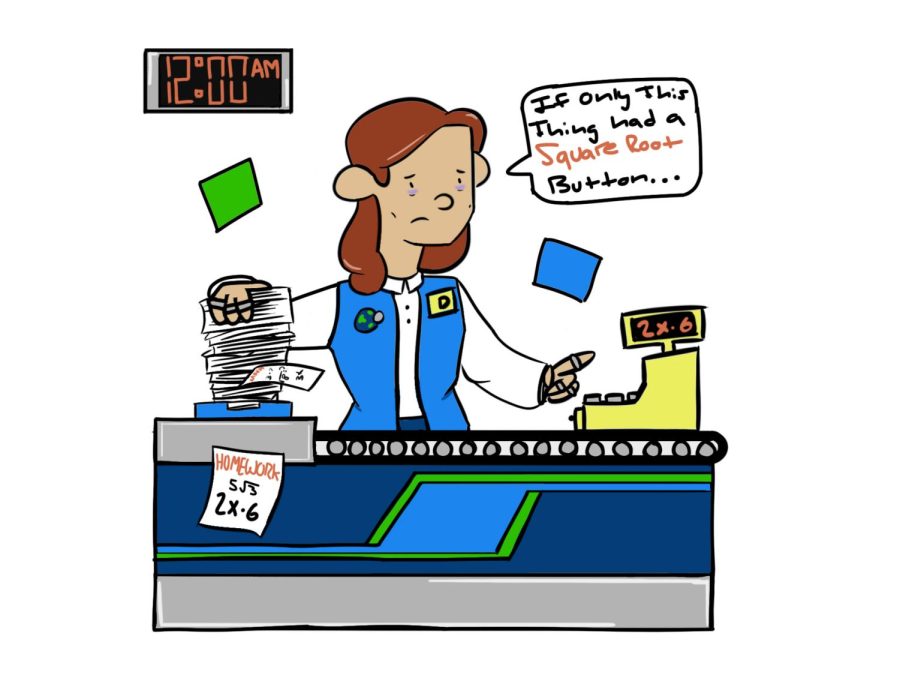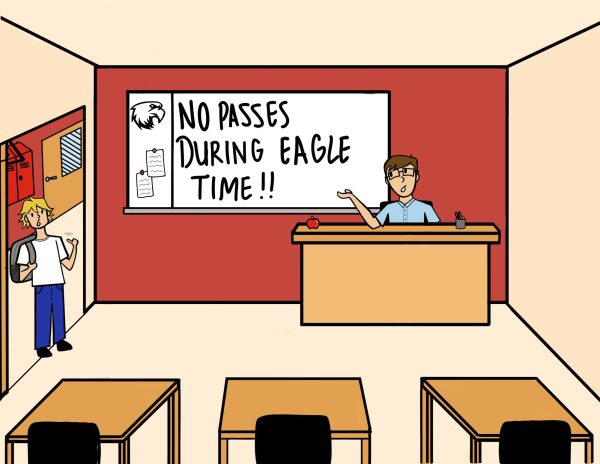Teens are being taken advantage of in the workforce
The struggle between school and work is real for students.
Exploited and underpaid.
These are the two words that come to mind when I think about people under 18 working entry-level jobs.
One might expect that there will be fair pay and treatment for their labor, right? However, most people younger than 18 all across the country are getting duped for their labor, and it’s unacceptable.
When teenagers take a job for the first time, they usually start in what is called entry-level jobs that some might think of as a starting place to earn extra cash for shopping on personal items.
Who wouldn’t want to make money to buy that new jacket you’ve been eyeing for a while or that cute skirt all by and for yourself? The problems and issues arise when high school-aged workers are given long, closing-hour shifts with meager pay.
Some might argue that if a worker isn’t satisfied with the amount of pay or the hours they are working, they shouldn’t take the job or just quit. While it can be true that getting a job while under 18 is voluntary and the decision of the person themselves, it does not dismiss the fact that the people who put in the work and effort as any over 18 worker should be fairly compensated for the fruits of their labor along with the amount of time spent at work. You can’t expect a potter to make you a vase without clay now, would you?
Dismissing complaints about working conditions and adequate pay ignores the root causes why young workers feel exploited and abused by their employers. While it is easy to say to someone to pursue another entry-level job, when you have been rejected to 12 applications for entry-level jobs that require no experience whatsoever and counting like myself, it can get very tricky to keep looking for better jobs.
Yes, some jobs offer small perks like free food and employee discounts, but they typically do not provide enough value to make up for low pay and poor treatment. A 50% discount on drinks or a small discount on electronics is subpar and unacceptable compared to a decent living wage. These workers put their backs and minds into their work and endure late-night closing hours while standing up, lifting heavy objects from time to time, and doing nearly everything inside the workplace whether it’s stocking, hosting, packing, or cleaning.
On the topic of wages, many teenagers who are working do so because they want to have some extra income for themselves to buy miscellaneous items. Although this is a large majority, there is still the small minority out there that desperately need the paychecks that they earn to support their families and survive. A small wage for long closing hours will not be acceptable.
Raising wages to $15 per hour for these workers will be a tremendous boost in morale and economic status. According to a living wage calculator for Travis County made by the Massachusetts Institute of Technology, these wages have to be at the minimum of $15 per hour for a single adult with no children in order for them to be considered a “living wage.” In my opinion, there should also be a rare occurrence of closing shifts that are debilitating to the employees instead of being the norm for these underage workers. Not only that, we need to be more aware that sometimes these are still teenagers and students, with families that they need to take care of and financial responsibilities to deal with.
In a U.S Department of Labor Wage and Hour Division website for state minimum wage laws, the federally set minimum wage here in Texas is $7.25 per hour and has remained untouched since 2009. These minimum wage laws are undoubtedly outdated, with no regulations regarding how employees under the age of 18 should be paid fairly required by law. There has to be a total overhaul and relook into the federal minimum wage and minimum wage laws for employees under 18. You cannot look at me in the eyes and tell me that these workers are being paid fairly and should shrug it off, making better financial decisions for the future.
Your donation will support the student journalists of Akins High School. Your contribution will allow us to purchase equipment and cover our annual website hosting costs.

Academy: ECHS
Number of Years on Staff: 2
Title: Co Editor-In-Chief
Why do you enjoy being on staff? I enjoy being on staff because I always felt like the torch of journalism needs to be passed down for generations to come, including me.
What do you do for fun? Playing video games, reading.
What are your hobbies? Photography and playing chess.
Hopes & Dreams after high school? I hope to be a journalist a while after high school and make music just for fun.








